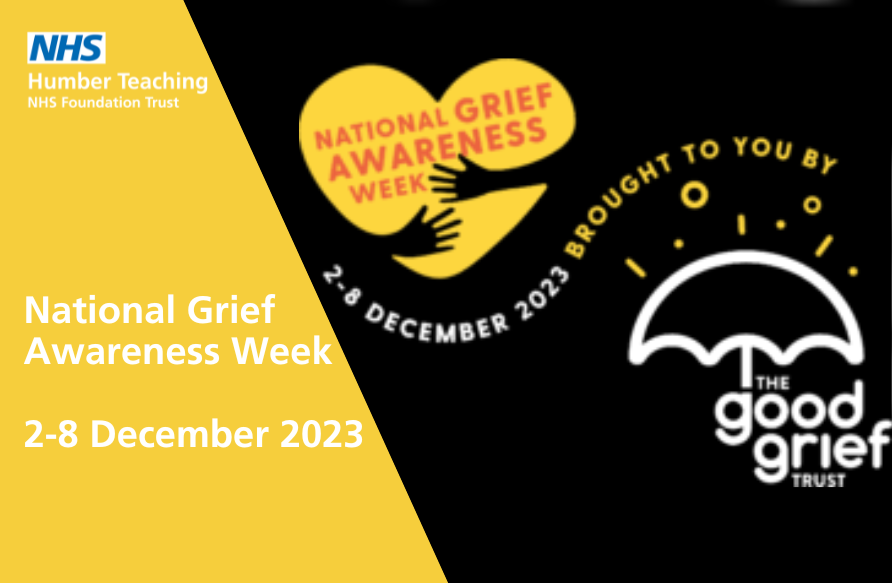Grief Awareness Week
Published: 04 December 2023 to 31 December 2098

Grief is natural human response to loss and bereavement and grieving is a process that everyone may experience differently.
There are no ‘rules’ how and for how long one should grieve. Rather, people learn how to manage grief and adapt to the new reality following loss.
Despite those differences, research suggest that for many people grieving process can be described in stages which reflect changes in and adjustment to emotional experience of loss. Those stages are not fixed but flexible, and they are not bound by order or length of time they last. They are intended to help people to identify and process loss related feelings.
Some commonly experienced emotions in response to grief are anger, regret, denial, guilt, sadness but also loss, sense of being overwhelmed, numbness or detachment.
The impact of loss is not limited to emotions – it can affect physical, cognitive and behavioural aspects of functioning. Most commonly it manifests as sleep problems, appetite changes, physical health issues and changes to how we interact with others (usually withdraw from or seek company of others).
For most, grieving does not require therapy - support from family and/or friends is often enough to help coping with grief. There are also several organisations nationwide which can help people with their experience of grief, e.g. (this list is not exhaustive)
- Cruise Bereavement Support
- Samaritans
- Mind
- Survivors of Bereavement by Suicide
- Support after Murder and Manslaughter
- Support and Care after Road Death or Injury
- The Loss Foundation (support for bereaved by cancer)
- The Lone Twin Network
- Child Bereavement UK
While grief is not synonymous with depression or anxiety from clinical point of view, sometimes it can result in mental health disorders, especially when individual coping skills are not sufficiently robust to carry them through the grieving process and/or loss is particularly traumatic or stigmatised is some way (violence, suicide, drug overdose).
In case of experiencing particularly severe emotional distress and impairment in various areas of functioning over a prolonged period, please contact your GP or East Riding Talking Therapies for support.
You can refer by:
Calling: 01482 335451
Online: https://iaptportal.co.uk/erew.html
Text: Text talk to 60163
Email: HNF-TR.SelfReferral@nhs.net
Please visit our website: NHS East Riding Talking Therapies (humber.nhs.uk)
- Summary:
- Category:









